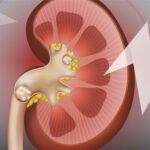Determining the Appropriate Amount of Testosterone for Men
A blood test can diagnose low testosterone levels. A normal range is between 300 and 1,000 ng/DL. A doctor may run the test twice to make sure it is accurate. If the level is below 300 ng/DL, the person may need to take supplemental testosterone. It is best to consult a specialist for advice on treatment options and risks associated with these drugs. Fortunately, there are several options available for treating low-T.
Some men experience balding as a normal part of aging. While some men may experience this as they grow older, it is an unpleasant side effect. In severe cases, men may experience excessive exhaustion and lack of energy. Moreover, a decrease in testosterone levels can cause difficulty getting motivated to exercise. These symptoms are very common in men with low T. And they don’t only affect ejaculation.
Although many men may be uncomfortable talking about their health problems, it is important to discuss these issues with your physician. Whether it’s prostate health or hormone imbalance, knowing what these conditions are and how to deal with them can help you manage your condition better. Your primary care physician can refer you to a urologist or an endocrinologist if the symptoms persist. If you feel that the symptoms are affecting your life, seek medical advice immediately.
A doctor may refer you to a urologist or an endocrinologist, such as the men’s specialists at Precise Men’s Medical Center in Cleveland. These doctors specialize in male health and will recommend a course of treatment based on the results of the tests. They will be able to prescribe medication that works with your hormone levels. If the symptoms do not improve, you may need to seek medical advice. Your primary care physician can refer you to a urologist or endocrinologist.
A doctor will be able to determine the amount of testosterone in your blood. If it is low, a doctor may suggest that you take testosterone supplements. The pills can be addictive and can cause dependence on drugs. A doctor may recommend medication if they feel your condition is too severe. This can make you feel worse, which is why you should consult a physician immediately. However, if you’re having an overdose of hormones, talk to a pharmacist or primary care provider.
If you’ve had your doctor rule out a medical condition, the first step is to talk to him or her. Whether you’ve had a test for low-T, or are experiencing symptoms, your doctor can help you understand the condition and find a solution for it. You can also discuss the possible risks associated with the drugs and ask for more information. You will also need to visit a urologist and discuss the causes of low-T.
There are many symptoms of low testosterone, including changes in sexual function such as fewer spontaneous erections during sleep. It is also known to lead to infertility. Physical symptoms of low T include increased body fat, reduced muscle mass, weakened bone density, swollen breasts, and a decrease in hair. Men with low T may also find it hard to concentrate, and they may feel depressed and irritable.
The symptoms of low T can range from a decreased sex drive to depression. Some men also have an overall decrease in energy levels. Loss of hair is another symptom. In addition to being less visible, low T can cause balding. And while it is a normal part of growing older, it can affect fertility. A doctor can prescribe testosterone replacement therapy for low T. Depending on your symptoms, your physician may prescribe an injection, implant, gel, patch, or natural treatment.
Other common symptoms of low testosterone are a decreased libido, trouble falling asleep, and decreased sex drive. In rare cases, low testosterone can also cause difficulty getting pregnant and conceiving. The American Urological Association estimates that approximately two in every five men over 45 and three out of ten men over 70 have low levels of this hormone. It is important to note that testosterone can be treated, but this can be difficult without the help of a medical professional.
The symptoms of low testosterone range from mild to severe. In some cases, the symptoms can last for months or even years. The treatment of low T depends on your lifestyle and genetics. Those with low testosterone will need a hormone replacement therapy or a sex-enhancing drug. These men with low T will likely experience mood swings and an overall lack of energy. Despite these symptoms, many men will still experience some of these signs and symptoms.
The symptoms of low testosterone may include a reduction in the size of the testicles. Males who have a low-testosterone level will experience trouble with fertility. Symptoms of low T can also affect mood and energy levels. A male with low T may have trouble falling asleep and find it hard to concentrate. In some cases, men with low T may also have difficulty sleeping. So, it is crucial to consult a medical professional as soon as possible.
Low T may also affect men’s health. It affects their mood, energy levels, and fertility. As a result, it can be a real problem for both men and women. In addition, testosterone may cause balding in some men, while it is more common in others. This is not uncommon for older men, so it is crucial to be aware of signs of low T and to seek treatment for the condition as soon as possible.








